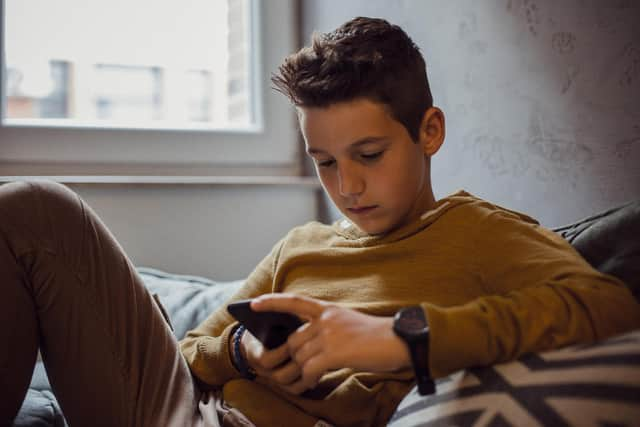Mobile phone use outside school is of far greater potential significance - Rhiannon Wilkinson
However, no new announcement is useless, as it serves to re-open the conversation about young people’s cultural dependence on their mobile phones generally.
Do we really know what a significant number of young people are consuming and being influenced by as they tap away at their phones and digest the material on their screens? Do you really know what your children are accessing?
Advertisement
Hide AdAdvertisement
Hide AdSince children are given mobile phones from an increasingly young age and 98 per cent of 12 to 15-year-olds own a phone, schools do their best to regulate pupils’ technology use. Most have made great strides in cracking down on the use of mobile phones by pupils on their premises.


At Ashville College, considering the part we can play in managing pupils’ engagement with technology is a constant process. Like most schools, we restrict the use of mobile devices in our Senior School, by collecting phones in from Year 7, 8 and 9 pupils and returning them at the end of the day.
Pupils in Year 10 to Upper Sixth must switch off their mobile phones during the school day unless directed otherwise by a staff member. We attempt to ensure that unsuitable sites cannot be accessed from within college.
In addition, September 2023 saw the introduction of iPads for pupils in Year 5 to Year 11. College-owned and college-managed, they only grant access to educational materials and predetermined and approved applications. This initiative guarantees safe and equal access to materials for all pupils, both inside and outside school and enables staff to plan for consistent technology integration in classrooms.
Advertisement
Hide AdAdvertisement
Hide AdHow we work with pupils and parents to help them navigate the opportunities and perils of mobile phone use goes beyond policy. Acknowledging the impact and risks of the use of mobile phones and, by association, social media, means providing in-person support and guidance, whether it’s through day-to-day pastoral care, PSHE assemblies and parent seminars, or the specially trained professionals who work at our Health and Wellness Centre.
The challenges of negotiating our way through what has been labelled the ‘teenage technological world’ can only be met effectively by schools and homes acting in partnership. The impact of social media on mental health is one of the most significant challenges facing anyone who works with children of secondary school age, and in many cases sadly, even younger. It is an issue much ruminated upon and discussed by heads and teachers everywhere.
Social media is not known for its balance. Indeed, algorithmic structures create situations where children with problems are recommended sites which make their issues worse.
With regard to online access, what happens outside school is of far greater potential significance than what happens during the school day. We find that a lot of the issues which affect attitudes, language, manners, behaviour and learning in school flow from access to unpleasant, often age-inappropriate sources on sites accessed outside our school.
Rhiannon Wilkinson is Head of Ashville College, an independent co-educational school in Harrogate.
Comment Guidelines
National World encourages reader discussion on our stories. User feedback, insights and back-and-forth exchanges add a rich layer of context to reporting. Please review our Community Guidelines before commenting.